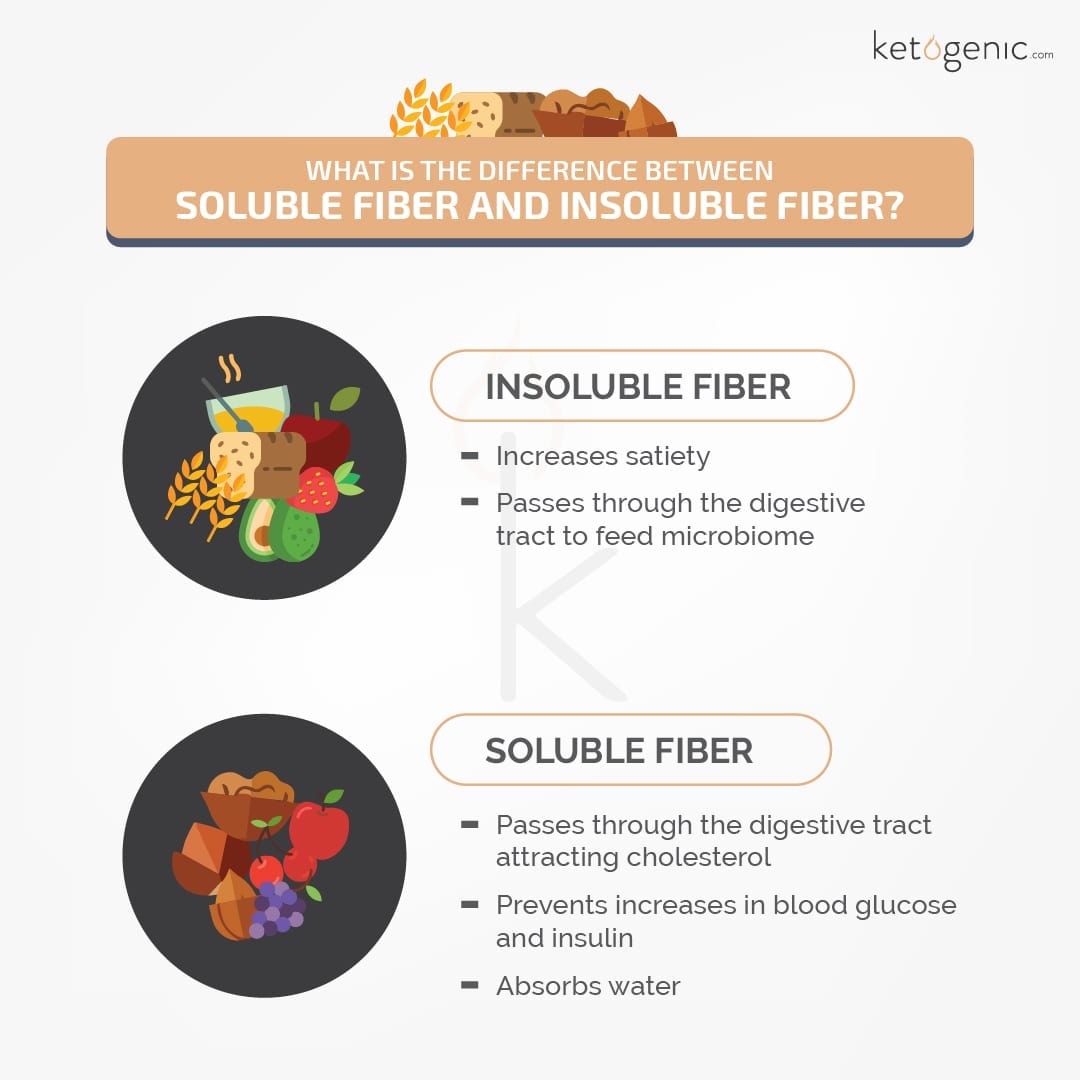Constipation on Keto: Solving GI Issues on the Ketogenic Diet

Many people experience a smooth transition to the ketogenic diet and enjoy the newfound energy and the many benefits that come along with it. Some people might find themselves dealing with constipation. Fortunately, there are different ways to relieve constipation on keto and regulate digestion and bowel movements.
Avoid heavily processed foods or certain artificial additives that might irritate the digestive system and instead opt for nourishing and natural whole foods. Keto isn’t as simple as increasing your intake of healthy fats and proteins and lowering your intake of carbohydrates. Keto also doesn’t look the same for everyone and many people benefit from adding more fiber to their ketogenic diet.
What is fiber?
Dietary fiber is mainly found in certain foods, such as vegetables, fruits, and legumes.
Fiber refers to the parts of plant foods the body is unable to properly digest or absorb. The body can break down and absorb proteins, fats, or carbohydrates, but fiber is different and passes relatively intact through the digestive system. Fiber isn’t digested by gastrointestinal enzymes, rather, it’s digested or fermented by bacteria in the large intestine.
Fiber has been linked to various health benefits, such as relieving constipation and helping maintain a healthy body weight [1]. Many researchers believe low dietary fiber is a risk factor for chronic constipation [2]
Soluble Fiber
Two different types of fiber are found in plant foods. Soluble fiber dissolves in water and turns to a gel-like material. Research shows soluble fiber can help treat diarrhea [3]
Insoluble Fiber
Insoluble fiber doesn’t dissolve in water and promotes digestive motility, so it can be helpful for those dealing with constipation. Insoluble fiber can be found in certain nutritious keto-friendly foods, such as cauliflower.
Varying amounts of soluble and insoluble fiber are present in different plant foods [4]. Fibrous foods usually have both soluble and insoluble fiber. To dive further into the intricacies of fiber, check out our detailed article.

Can Keto Help My Gastrointestinal Problems?
Research continues to point to the benefits of the ketogenic diet for a range of gastrointestinal disorders and other conditions. MCTs (medium-chain triglycerides) and the healthy fats consumed on keto can positively affect the digestive system [5]
A low-carb diet might also provide relief for abdominal pain, diarrhea, and other associated symptoms of irritable bowel syndrome (IBS) [6]
Research shows the importance and influence of the gut microbiota on human health and the progression of the disease [7] Diet and nutrition have a huge impact on the gut microbiota — the microorganisms and bacteria in the human gut. Studies uncover how the ketogenic diet can positively alter gut microbial diversity and beneficial microbiota, neurovascular function, and more [8]
Promising research is underway on the gut-brain connection and the communication between the human gut microbiota and the brain. This connection is most evident in the studies revealing a positive change in the microbiota and the symptoms of autism in children on the ketogenic diet [9]
Stomach pain, constipation, diarrhea, and other digestive issues are problems you shouldn’t have to deal with. Going keto and consuming keto-friendly nutritious fibrous foods might help!
Increasing Fiber Intake to Prevent Constipation on Keto
Many fiber sources also have lots of carbohydrates, so it’s important to look for non-starchy vegetables to add more fiber to your diet. Try foods like leafy greens (spinach, lettuce, and broccoli), cauliflower, and berries.

Has Going Keto Helped Your Gastrointestinal Problems?
How has keto positively transformed your health? Comment below and let us know!
References
J. W., Baird, P., Davis JR, R. H., Ferreri, S., Knudtson, M., Koraym. A., Waters, V., & Williams, C. L. (2009). Health benefits of dietary fiber. Nutrition Reviews, 67(4), 188-205.
Morais, M. B., Vítolo, M. R., Aguirre, A. N. C., & Fagundes-Neto, U. (1999). Measurement of low dietary fiber intake as a risk factor for chronic constipation in children.Journal of Pediatric Gastroenterology and Nutrition, 29(2), 132-135.
Homann, H. H., Kemen, M., Fuessenich. C., Senkal, M., & Zumtobel, V. (1994). Reduction in diarrhea incidence by soluble fiber in patients receiving total or supplemental enteral nutrition. Journal of Parenteral and Enteral Nutrition, 18(6), 486-490.
Mayo Clinic. Dietary Fiber: Essential for a Healthy Diet.
Shah, N. D., & Limketkai, B. N. (2017). The use of medium-chain triglycerides in gastrointestinal disorders.Practical Gastroenterology.
Austin, A. L., Dalton, C. B., Hu, Y., Morris, C. B., Hankins, J., Weinland, S. R., Westman, E. C., Yancy Jr, W. S., & Drossman, D. A. (2009). A very low-carbohydrate diet improves symptoms and quality of life in diarrhea-predominant irritable bowel syndrome. Clinical Gastroenterology and Hepatology, 7(6), 706-708.
Gentile, C. L., & Weir, T. L. (2018).The gut microbiota at the intersection of diet and human health. Science, 362(6416), 776-780.
Ma, D., Wang, A. C., Parikh, I., Green, S. J., Hoffman, J. D., Chlipala, G., Murphy, M. P., Sokola, B. S., Bauer, B., Hartz, A. M. S., & Lin, A. (2018). Ketogenic diet enhances neurovascular function with altered gut microbiome in young healthy mice. Scientific Reports, 8
Newell, C., Bomhof, M. R., Reimer, R. A., Hittel, D. S., Rho, J. M., & Shearer, J. (2016). Ketogenic diet modifies the gut microbiota in a murine model of autism spectrum disorder.Molecular Autism, 7(37),









